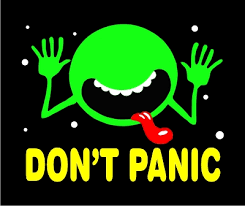Greetings, indie game lovers!
My name’s Marc Whipple, and I’m a videogame lawyer. Indie Gamer Team has invited me to write about legal things that might interest the indie community. While this might be of more practical use to developers, even players and fans should get some entertainment out of seeing how the sausage is made.
I’ve been working in the videogame industry since 1998 when the company I worked for, Meyer/Glass Design, started a videogame subsidiary and developed the first authorized version of the classic strategy game Axis and Allies for the PC. I was the General Counsel of Meyer/Glass Interactive until it was spun off, and later I was the General Counsel of Incredible Technologies, makers of GOLDEN TEE and many other fine games. Now I’m of counsel to an intellectual property law firm just outside of Chicago, IL and do a lot of work with independent video game developers.
As far as my personal gaming life, my first console was an original Atari 2600 and I’ve been playing, loving, and frequently swearing at video games of all stripes ever since. Also, a) I have a Violet Proto-Drake, and b) I played Wernher von Braun in a cinematic for the Axis and Allies PC game, so don’t try to knock my gamer cred.
Since this is my first post here, this is where I’d usually roll out the “Introduction to Intellectual Property” spiel that any IP lawyer can do in her or his sleep. However, I thought I’d do something more fun and much more legally problematic! Namely, discuss a recent trademark registration in the context of “What does this mean for indie games?”
Our target for tonight: US Trademark Registration No. 5135888 to King.com for “SUPER.”* (I can’t link directly to the registration on the USPTO database because it uses sessions, but if you search for “US Trademark 5135888,” you will find it quickly.)
“WAIT!” I hear you cry, (Might want to check the privacy settings on your Amazon Echo.) “How can they trademark SUPER for video games? What does this MEEEEEAN? Has the whole world gone MAD?” Well, if you’re asking that, I assume you haven’t been paying attention, but in the context of this trademark registration, there is both more and less here than meets the eye.
Now, I could go into all the ways that in my opinion, this is a badly filed registration. And believe me, there are many. This thing is a mess. But a lot of them are technical and of interest only to trademark geeks (yes, we’re a thing)** so I’ll focus on what this registration does and does not mean to developers of video games and the people who love them.
First of all, here’s the actual trademark which was registered:
 (Obtained from the USPTO TRAM database. Used for educational purposes only.)
(Obtained from the USPTO TRAM database. Used for educational purposes only.)
Now, what’s the first thing you notice? Well, obviously, it’s adorable – but what’s the next thing? This is not the word SUPER all on its own. This is a graphic mark with colorful little smiling thingies and the word SUPER in a fun, cartoony font. In fact, that’s not far from how the mark is actually described in the registration:
The mark consists of an image of “SUPER” in white outlined in pink/purple, a cartoon fruit shaped image behind “SUPER” in pink and various cartoon fruit shaped images in the colors orange, green, yellow, and blue outlined in brown with several blue squares making up the background with white stars and faint radiating lines throughout with an orange semi-circle outlined in white in the right lower corner.
The color(s) blue, pink, green, orange, yellow, white, purple and brown is/are claimed as a feature of the mark.
Here is another USPTO trademark registration for a mark you may have heard of at some point:
US Trademark Registration No. 2345441 to Nintendo of America, Inc. for “SUPER MARIO”, issued in 2000, first use 1985.
So how can King have SUPER when Nintendo has a registration for SUPER MARIO which predates them by literally thirty years? Well, there are multiple answers to that, but the most important answer is that King does not have a registration for SUPER. The mark is just listed that way in the trademark database because that’s the only word that appears as part of a larger overall graphic composition. Therefore, unless Nintendo put “Super Mario” in a fun cartoony font in the middle of a bunch of cute colored fruits, there would be no “likelihood of confusion,” which is what the test is for whether one trademark infringes another.
And that is the crüx of the matter. The only thing that registration gives King the right to do is stop people from using similar marks in a way which creates a likelihood of confusion in the mind of a reasonable consumer. Which is the whole purpose of trademarks: to protect the public, not the seller, from being misled (purposefully or not) about the source of a good or service. Is there any likelihood that people will confuse Super Mario with a cartoony “Super” surrounded by cute colorful fruits? Not really. (NOTE: This is not legal advice to Nintendo, not that they need it.) So they can have the registration, and it causes no beef with Nintendo.

That being said, and without naming King in particular, the problem for Indie game developers is that sometimes trademark registrants get a little… liberal… with their interpretation of what might potentially cause confusion. So, again without saying King has or would do this kind of thing, it is entirely possible that they could see somebody use the word “Super” in the name of a game, and the name has a few colorful things near it in the title screen, and next thing you know they’re sending a Cease and Desist letter to an unsuspecting indie developer who was just trying to make a game about Super Mutant Ninja Mice who have brightly colored uniforms or something.
Actual chance of confusion? Zero. (NOTE: This is not legal advice. If you do wish to create a game about colorful Super Mutant Ninja Mice, you really need to talk to a trademark attorney.) But if a case that isn’t wholly irrational on its face can be made, they can ethically and legally send that letter and scare the Bejeezus (Editor’s Note: Approximately 1.21 Bejeezuwatts) out of somebody with few or no resources to fight it.
And this happens all the time.
Here’s a link to a blog post I wrote about what to do if this happens to you: HELP I GOT A LEGAL THING. The first thing?

Anyway, whether or not they could win such a hypothetical infringement case, big video game companies spend more on coffee for lawyers than you will probably earn in your whole life. The law presumes registered trademarks are valid: if you want to fight, you are starting from a very bad position. The only winning move in this particular indie game development… game… is not to play.
Now, does this mean you can’t make a game called “Super [Something]?” No. But it means there’s a little more risk to using that word now. And the closer you get to whatever eye-meltingly colorful game King associates “Super” with, the bigger that risk gets. This is just one example, if a particularly egregious one, of the sort of pitfalls that await Indie developers when it comes to naming their games. You might see this and decide it meant you couldn’t use the word “Super” in any way. You might see it and emit howls of derisive laughter because you think it only counts if you have “Super” in a fun cartoony font with specifically colored fruits around it.
You would be wrong either way.
Game naming is one of the most hazardous aspects, legally speaking, of independent game development. Here there be monsters – with giant legal teams. (Worst kind.) While I applaud developers who at least have the initiative to try to clear names themselves, they don’t increase their odds of avoiding claims of infringement much more than developers who don’t bother. Sad but true.
The first line of defense is to make the game’s name as original as you possibly can. Distinctive is always better than non-distinctive, all things being equal. But you want people to understand what the game’s about, and for that you may need to use common words. Those common words may be part of somebody else’s trademark registration. And once you get into that situation, only advice from a trademark attorney (NOT your uncle Benny who does wills and house closings, a trademark attorney.) can reliably keep you out of trouble. Or even, dare I say…
Super trouble. Sorry. Couldn’t help myself. (Editor’s Note: You people make my head hurt.)
Anyway, thanks for reading: questions and comments are always welcome.
*Editor’s Note: Must… resist… making… Super. Hot. Reference. Super. Hot. Super- I DON’T HAVE A PROBLEM.
**Editor’s Note: We checked. Yeah, seriously, they are apparently a thing.

